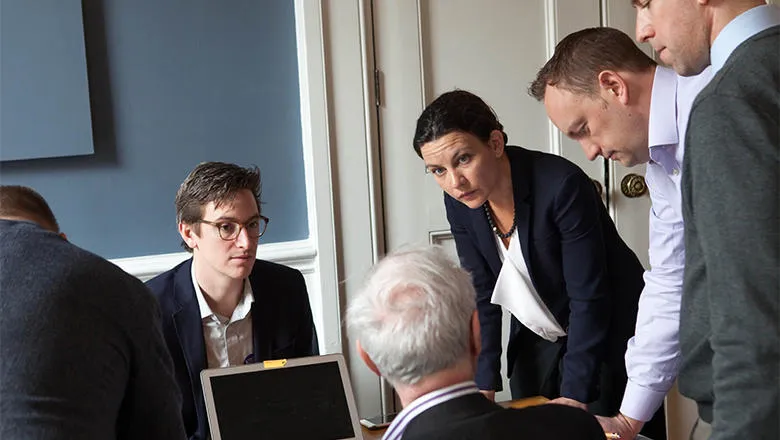The UK government should consider fundamental changes to the way it analyses strategic problems. These new requirements are not created by the unfolding global pandemic, but by the need for a persistent whole-of-government approach to compete, and if necessary, confront multiple adaptive opponents who have long-term strategies to remake the international order.’
Ivanka Barzashka, Centre for Science and Security Studies (CSSS) Research Fellow and Managing Director of the Wargaming Network.
03 November 2020
Wargaming to inform UK and NATO defence and security policy
Novel wargame approaches to conflict and competition could help policy makers develop theories of success for today’s complex security environment.

Researchers at the School of Security Studies’ Wargaming Network at King’s College London are examining the impact of political and technological change on strategic decision-making in crisis and war. They are developing new analytical methods based on wargaming techniques.
Ivanka Barzashka, Centre for Science and Security Studies (CSSS) Research Associate and Managing Director of the Wargaming Network, has been leading this five-year project, sponsored by the Carnegie Corporation of New York. She explains wargaming methods hold potential for developing and testing theories of success and victory but are currently underdeveloped.
In her recent testimony to the House of Commons’ Defence Committee, Barzashka stated: ‘The UK government should consider fundamental changes to the way it analyses strategic problems. These new requirements are not created by the unfolding global pandemic, but by the need for a persistent whole-of-government approach to compete, and if necessary, confront multiple adaptive opponents who have long-term strategies to remake the international order.’
The UK government has been conducting an Integrated Security, Defence and Foreign Policy Review, heralded as ‘the most radical reassessment of [the UK’s] place in the world since the end of the Cold War.’ NATO has also begun an informal process for adapting its Security Concept, the political document that outlines the security challenges facing the Alliance and its responses.
In a new article published by the Atlantic Council, Timo S Koster, former director for defence policy and capabilities on the NATO International Staff, and Barzashka argue that, to adapt its grand strategy, NATO should adopt a new process for collective strategic analysis.
This process should be ‘based on a strategic net assessment that develops and tests national and collective theories of success in different scenarios, including peacetime, crisis, and war, using a range of analytical methods, including wargaming.’
Referencing Barzashka’s testimony, the House of Commons recommended that the government ‘set out the mechanisms and approach to challenging assumptions underpinning the UK’s defence strategy’ and ‘explain what role the Dstl’s Defence Wargaming Centre and MoD’s Strategic Net Assessment Unit will play.’
